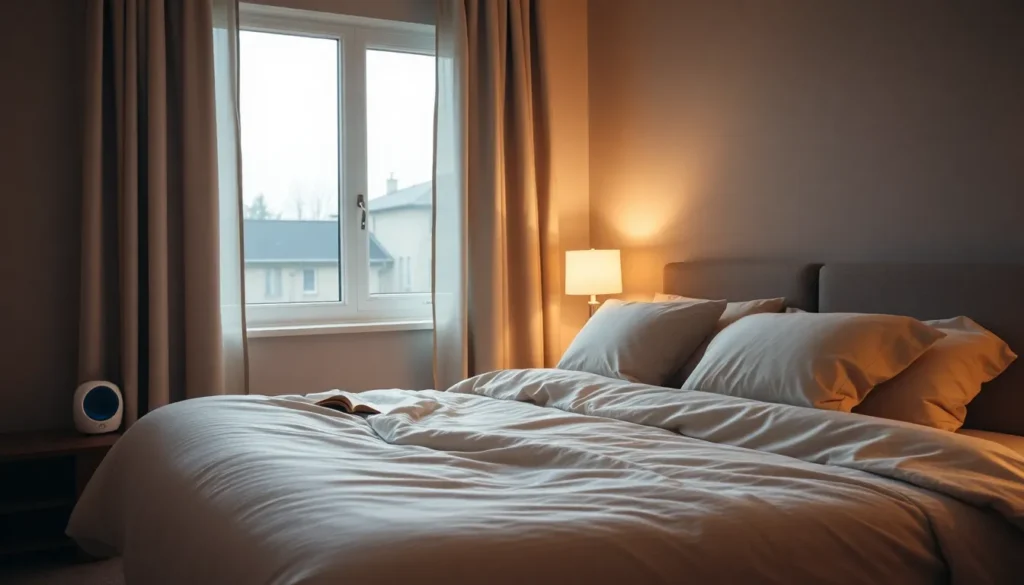Everyone knows the feeling: you wake up, stretch your arms, and let out a contented sigh. But what does it mean to have truly slept well? In a world filled with endless distractions, managing sleep has become a bit of an Olympic sport. So, grab your favorite pillow and settle in as we jump into the science and benefits behind those precious Z’s that can transform your life. After all, who wouldn’t want to unlock the secret to a great night’s sleep?
Table of Contents
ToggleUnderstanding Sleep: What Does It Mean to Sleep Well?

A good night’s sleep isn’t just about getting those recommended eight hours: it’s about quality, too. When one sleeps well, they cycle through various stages of sleep that contribute significantly to physical and mental well-being.
The Stages of Sleep and Their Importance
The sleep cycle includes roughly five stages divided into Non-Rapid Eye Movement (NREM) and Rapid Eye Movement (REM) sleep. NREM sleep has three sub-stages, each playing a crucial role in restorative processes:
- Stage 1: The lightest sleep, transitioning between wakefulness and sleep. Here, muscles relax and the mind begins to slow down.
- Stage 2: This is where the heart rate slows and body temperature drops, allowing the body to prepare for deep sleep.
- Stage 3: Known as deep sleep, this is where the body goes into recovery mode to repair tissues, build bone, and strengthen the immune system.
- REM Sleep: It occurs about 90 minutes after falling asleep. This stage boosts mental functions such as memory and learning, making it vital for cognitive health.
Each stage plays an essential role, and missing out on any of them can leave one feeling groggy and out of sorts.
Factors That Contribute to a Good Night’s Sleep
Achieving restful sleep is often a matter of creating the right conditions. Let’s explore what contributes to those restorative nights.
Creating the Perfect Sleep Environment
Creating optimal conditions for sleep can be a game changer. Here’s what to consider:
- Light: Darkness signals to the brain that it’s time to sleep. Consider blackout curtains if streetlights are keeping you awake.
- Noise: A quiet environment is critical for sleep. White noise machines or fan sounds can drown out distracting noises.
- Temperature: The ideal sleep temperature hovers around 60-67°F. A room that’s too hot or too cold can disrupt sleep cycles.
Healthy Sleep Habits to Incorporate
Habits can profoundly influence sleep quality. Consider these strategies:
- Consistent Sleep Schedule: He shows up to sleep and wake at the same time daily, even on weekends. This consistency reinforces the body’s natural sleep-wake cycle.
- Wind Down Routine: Engaging in calming activities before bed, a warm bath or reading, can signal to the body that it’s time to rest.
- Limit Screen Time: Blue light emitted by screens can interfere with melatonin production. Setting screens aside an hour before bed can help.
The Impact of Diet and Exercise on Sleep Quality
Diet and exercise play pivotal roles in how well a person sleeps. What goes into the body significantly impacts the quality of sleep.
How Stress and Mental Health Affect Sleep
It’s no secret that a stressed mind can lead to restless nights. Anxiety and worries race through the mind, making it challenging to find peace at bedtime. Mindfulness practices, therapy, or simply talking it out with a friend can provide clarity and relieve mental burdens. Addressing these underlying issues can pave the way for better sleep.
Sleep Disorders: When to Seek Help
Recognizing when sleep becomes problematic is vital for overall health. Many dismiss sleep issues as just part of life, but identifying and addressing them can lead to monumental improvement.
Signs You May Not Be Sleeping Well
If waking up tired has become the norm, it’s time to take notice. Here are common indicators:
- Frequent awakenings during the night.
- Difficulty falling asleep or staying asleep.
- Daytime fatigue affecting daily activities.
Tips for Improving Sleep Quality
For those struggling with sleep, implementing practical tips can yield positive results. Some suggestions include:
- Avoid heavy meals and caffeine before bedtime.
- Keep electronics out of the bedroom.
- Establish a relaxing nighttime routine.
Tracking Your Sleep: Tools and Techniques
In the digital age, tracking sleep has become easier than ever. Wearable devices and apps can provide insights into sleep patterns and disturbances. Monitoring sleep can reveal trends and help pinpoint areas needing improvement, making it easier to achieve that coveted good night’s sleep.



